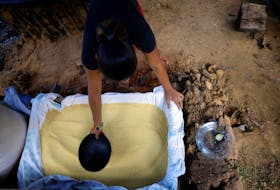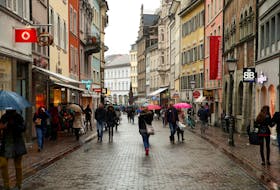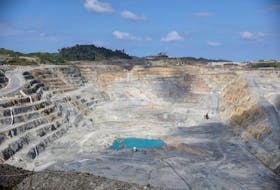There are recyclables.
And there are symbolic recyclables.
Many single-use plastic coffee pods used in the countless coffee machines found in Canadian offices and homes bear the recyclable symbol. But it is simply not accurate.
“A lot of producers of these K-cups and coffee pods made the claim recently that they are recyclable,” said Calvin Lakhan, a research scientist at the faculty of Environment Studies at York University in Toronto. “Based on my knowledge of the industry as well as the numbers reported in to provincial stewardship organizations, there is a recovery of less than one per cent. Very few people have the technology to recycle this material. It’s not actually recovered in a conventional recycling system.”
Lakhan and his colleagues examine all issues related to waste management in Canada and part of the challenge is what to do with coffee pods, he said.
Toronto city council is debating the issue.
Lakhan said there are 21 different types of coffee pods on the market that can be used in the office and household coffee machines. The dominant player on the North American market is Green Mountain Inc., established in this country as Keurig Canada and producer of the K-cup.
“To keep this material out of the landfill is enormously expensive, about $2,500 a tonne, and the environmental return from attempting to recycle these materials is also very low,” Lakhan said of the K-cups labelled as recyclable. “It’s actually the worst performing material from an environmental return standpoint.
If you do recycle it, the actual benefit to the environment isn’t very much.”
Matt Keliher, solid waste manager for Halifax Regional Municipality, said Keurig
and others mislead the public.
“They are supposed to be recyclable according to the marketing that’s out there,” Keliher said. Unfortunately, the marketing is not right. “They just market that it is recyclable or compostable. Unfortunately, they don’t understand the systems and they make these claims that consumers unfortunately end up buying. At the end of the day, the pods themselves, you can pull the top off and empty the grounds into the green bin and you can put the K-cup plastic into the recycle bag. We will do our best to try to capture that through the system but it’s challenging to try to get that material because of how small it is. That being said, that is what we prefer residents to do but they are also acceptable in the garbage. Throw them right in. They go to the landfill.”
Keliher said if the system can process the K-cups and if they have been cleaned properly, the municipality then has to find a market for the plastic.
“Right now, we have a market, a facility that will recycle it or not put it in the landfill, so it will be used as energy from waste.”
But for the most part, he said, “items that are labelled as recylable plastics are absolutely not acceptable in our program or most programs throughout Canada.”
“It’s the industry who will put a recyclable marketing campaign on an item that unfortunately consumers buy into. Those materials will get pulled off the line and sent to the landfill. What happens is residents end up paying for something that they are not getting. It’s greenwashing.”
And nothing much has changed over the past several years.
“There is no difference than when they started their campaign. It’s just now they are trying to sell that message.”
Lakhan takes issues with Keurig commercials.
“Increasingly in their commercials they are advertising that these items are recyclable and that is unequivocally not true, at least in the Canadian recycling system.”
Keurig Canada and Green Mountain could not be reached for comment.
Mike Hachey, a former Haligonian now living in Toronto, created a YouTube video that went viral, called Kill the K-Cup. The spoof video had a gigantic K-cup attacking a city and leaving a swath of death and carnage in its path. The video said that by 2014, there had been enough K-cups produced to circle the Earth 10.5 times.
“A lot of it comes down to what the consumer will do,” Hachey said. “We’re lazy. If we want people to recycle, you have to make it very easy for people to do that. It can’t be tearing apart a K-cup, rinsing it out. If it was just as easy as tearing of the tinfoil top and rinsing it out . . . ”
Hachey, who is working on a follow-up video with his promotional advertising company, iloveproducing. com, said Keuring is not taking advantage of the other solutions that have come forward, including fully recyclable pods and compostable pods.
“They are not doing it the right way,” he said. “It’s their responsibility to be more innovative.”
Club Coffee in Toronto produces compostable pods.
Lakhan said coffee producers have two choices. “Either invest in a technology to recycle the pods that they put out into the market, and what I’m talking about is investing tens of millions of dollars so that you can put the technology in at a local level to actually recycle this material,” he said. “Alternatively, switching to a different packaging type. You might run into an issue where the single-serve coffee no longer exists or it’s an issue of do we want convenience or do we want something that’s sustainable.”








